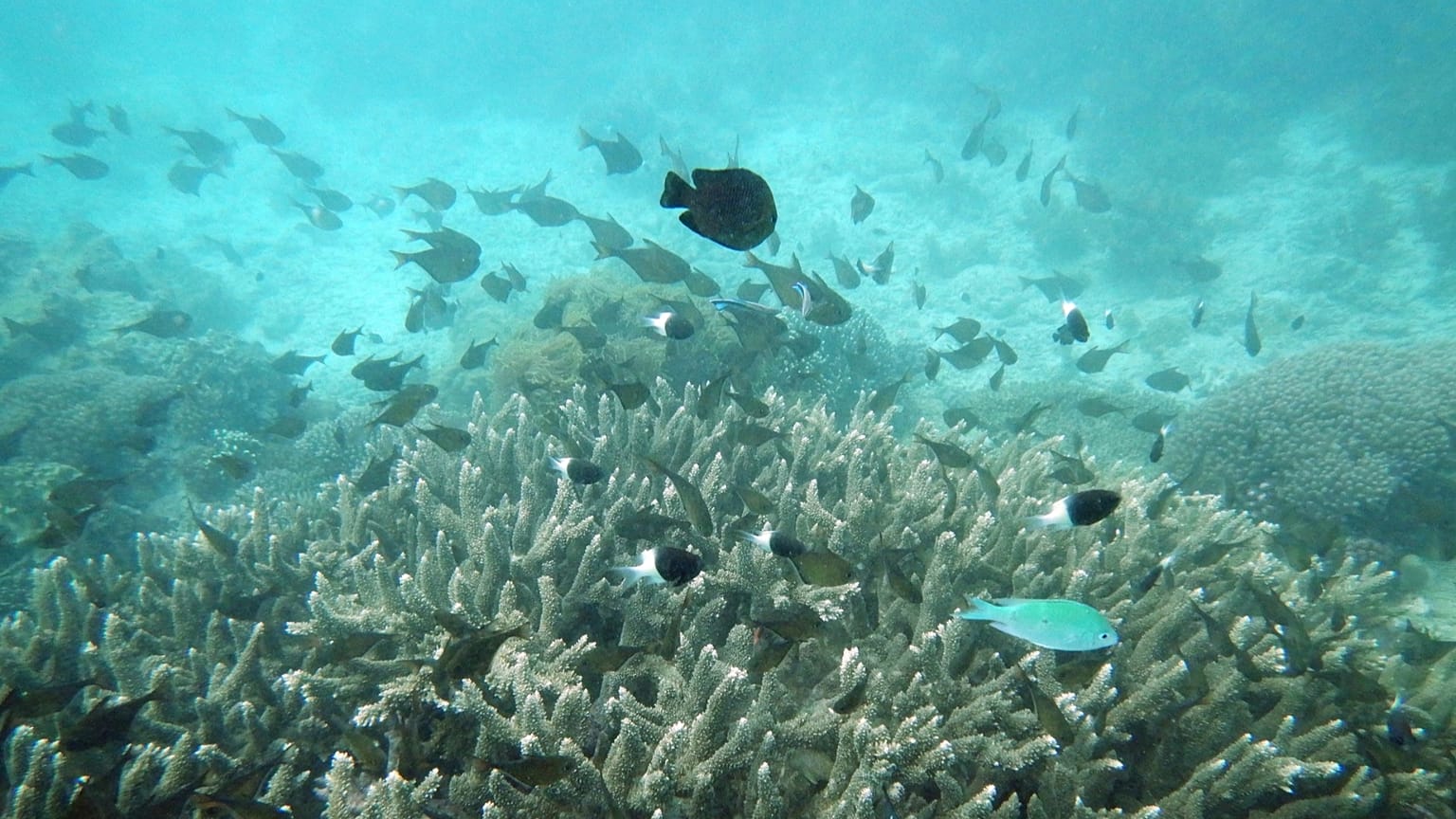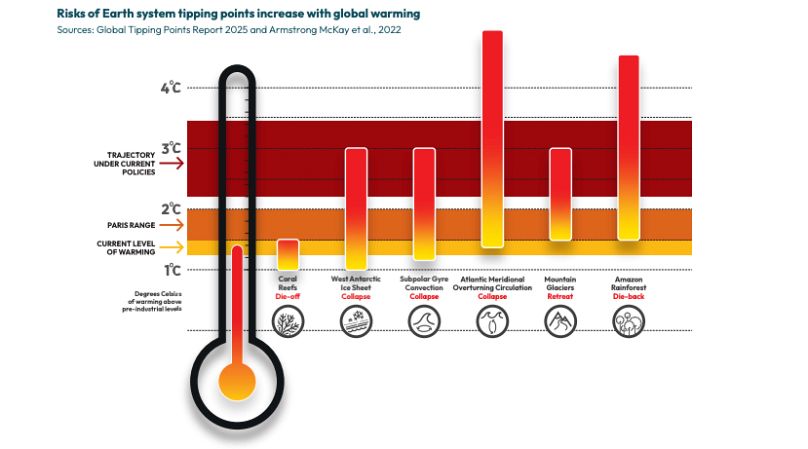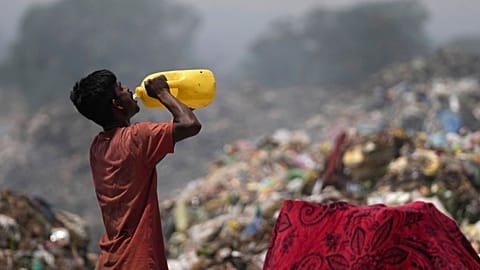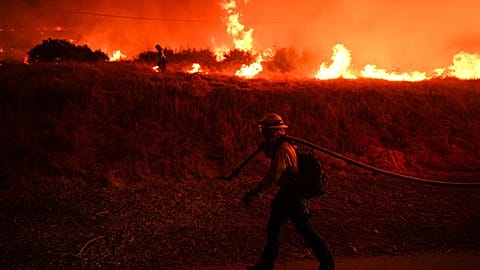Global policy makers are being urged to take ‘immediate and unprecedented’ action to prevent the risk of triggering further climate tipping points.
Failure to prevent global warming from hitting 1.5℃ is pushing humanity towards the “danger zone”, as planet Earth reaches its first-ever climate tipping point.
 ADVERTISEMENT
ADVERTISEMENT
 ADVERTISEMENT
ADVERTISEMENT
A new report involving 160 global researchers reveals that rising temperatures are causing widespread damage to warm-water coral reefs, threatening the livelihoods of hundreds of millions who depend on them.
Spearheaded by Professor Tim Lenton, and published by Global Tipping Points, the study calls for “immediate” action from leaders at COP30 and policymakers worldwide, arguing that climate goals set by the Paris Agreement are not enough.
Coral reefs: How much damage has been done?
Global heatingnow stands at 1.4℃, but scientists estimate the thermal tipping point for warm-water coral reefs is between 1℃ and 1.5℃ - making 1.2℃ the central estimate.
The report warns that even the most “optimistic emission scenarios” of stabilising warming at 1.5℃, as outlined in the Paris Agreement, will therefore not be enough to prevent coral reefsfrom “irreversibly passing their thermal tipping point”.
Already, global warming - attributed to greenhouse gas emissions- has resulted in “unprecedented dieback” of coral reefs, and the worst bleaching eventon record from 2023 to 2025.
“Returning global mean warming below 1.2℃ with a minimal overshoot period and eventually returning to 1℃ above preindustrial is essential for retaining warm-water coral reefs at meaningful scale, beyond a relatively few isolated refuge areas,” the report states.
Researchers also recommend improving reef management and implementing urgent policy responses and risk assessments to help give reefs the best chance of survival.
Earth’s climate tipping points: What else is at risk?
Every fraction of additional warming increases the risk of triggering further tipping points.
The report warns that parts of the polar ice sheet may have also already crossed tipping points, which could lead to several metres of “irreversible” sea-level rise in the future, affecting hundreds of millions.
If global warming exceeds 1.5℃ within a few years, as projected, the Amazon rainforest also risks widespread dieback, threatening "incalculable damage to biodiversity” and harming more than a hundred million people who depend on the system.
“The Atlantic Meridional Overturning Circulation (AMOC) is also at risk of collapse below 2℃ [of warming],” the report adds.
“This would radically undermine global food and water security and plunge northwest Europe into severe winters.”
‘Preventing’ climate tipping points
To prevent climate tipping points, experts say human-produced greenhouse gas emissions must be halved by 2030 (compared to 2010 levels) and then reach net zero by 2050.
They argue that current targets are not enough and will still commit the world to ongoing global warming that is likely to exceed 2℃ before the year 2100 - making decarbonisation and mitigating methane emissions key drivers.
“If we wait to cross tipping points before we act, it will be too late,” the report warns. “The only credible risk management strategy is to act in advance.”
The study also highlights positive tipping points generating change, including the significant uptake in solar panels and electric vehicles (EVs) worldwide.


















